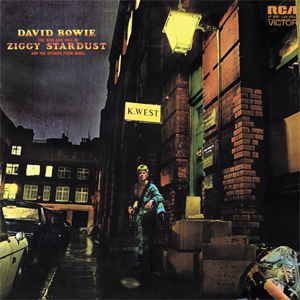(This is adopted from a speech I delivered a few weeks ago.)
Just a little over a week ago, we were all lucky enough to
experience a historical event that affects all of humanity. The most intriguing
thing about this event, however, is not that it is universal in effect. Rather,
it is where it occurred. It did not take place in the United States, as
misguided nationalists would want it to be, nor did it take place in Japan,
China, England, Germany, or any of the other economic powerhouses. In fact, it
did not even happen on Earth. Instead, it happened in the vastness of space.
The milestone in question is Voyager 1’s exiting of the solar system and
entrance into the history books as the first man-made object to leave the Sun’s
influence. It is a great achievement for science, and a testament to the vast
size and wonder of space, all of which would be impossible to observe, let
alone visit, if not for one object: the telescope.
 |
| I have a Bushnell in real life, but this is close enough. |
This is a telescope, not at
all dissimilar from the one originally used by Galileo to observe the moons of
Jupiter along with the mighty Hubble telescope that takes snapshots of distant
galaxies. The telescope is a key instrument of science, and learning about its
significance will expand your appreciation for astronomy and astrophysics,
along with the necessity of space exploration, along with the unique culture it
represents: the culture of science and reason. First, I will give you a brief
history of the telescope and the different forms it takes, along with their
different uses. Second, I will explain why I identify with the culture the
telescope represents, namely, the scientific community.
The telescope, while
typically pictured as a tube with lenses used to look at the moon, in reality
is defined as an instrument used to measure electromagnetic radiation, in most
cases light. This leaves a broad space open for many different specialized
types of telescopes, categorized by the radiation they detect, observe, their
configuration, and location. However, before we discuss the different types of
telescopes, it is essential to know where telescopes come from. The lenses
typically used in telescopes were invented very early in the Seventeenth
century in the Netherlands for use in eye glasses, but it wasn’t until the year
1609 that those lenses were pointed skywards. Galileo Galilee, an Italian physicist,
invented the telescope by carefully grinding a set of lenses, one concave, and
one convex, and placing them both in a tube. The combination of the two types
of lenses provided a magnifying effect when viewed with the concave lens
closest to the observer’s eye, and Galileo used this magnifying effect with
excellent results, viewing the surface of the moon along with a ribbon of
diffused light, a spiral arm of the Milky Way galaxy, in the sky. After the
invention of calculus by Sir Isaac Newton later in the century, telescopes
could be fashioned with greater precision and magnification, and used to find
the distance of stars from Earth. However, there was a limit of what the
telescopes could observe due to Earth’s atmosphere, as discovered in the early
Twentieth century with the advent of some of the largest ground-based
telescopes ever built. It was not until 1990 when the European Space Agency and
NASA were able to launch the famous Hubble Space Telescope that astronomers and
astrophysicists could get the clearest pictures possible of distant objects.
The Hubble Space Telescope, along with the discussion about the weaknesses of
ground telescopes brings us neatly to the different types of telescopes used
today. The main dichotomy between telescope types is one of location; that is,
the split between space and ground based telescopes. Space-based telescopes
provide the clearest images available, but are expensive to launch and
maintain, and are more vulnerable than ground-based telescopes due to their
remote location. Ground-based telescopes, on the other hand, are subject to
atmospheric interference, but are more reliable than space-based telescopes and
more accessible to amateur astronomers than space-based telescopes, for obvious
reasons. Ground-based telescopes come in three flavors: refractor telescopes,
which use lenses to magnify objects like Galileo’s telescope, reflector
telescopes, like the example here, which use a series of mirrors to magnify
objects and are the type used by optical observatories on the ground, and radio
telescopes, which use massive dishes to collect radio waves and other invisible
forms of electromagnetic radiation to paint a more detailed picture of the
celestial body. Space-based telescopes are once again dichotomized, this time into
reflector telescopes, like the Hubble Telescope, which use a very similar setup
to ground-based versions, and radio telescopes, which are essentially ground
bases radio telescopes compressed into a much smaller package. Space agencies
such as NASA use a combination of the two types of telescopes to create a
multilayered view of the night sky, giving astrophysicists the advantage of
multiple data types all from the same object. Now that I have given you a brief
history of the telescope, I will now explain why I identify with the scientific
community that the telescope represents. From an early age, I have always been
fascinated with science, and especially space, stemming from my naturally
skeptic, evidence-based nature and desire to make a difference. Science is the
ultimate form of skepticism and critical thought, and it only made sense for me
to go into a field where I can both question everything and explore the majesty
of space. Science has always been my explanation for everything. Its demand for
the truth, and not merely a convenient one, is something that no philosophy or
religion can even begin to rival. Science is humanity’s greatest chance at
survival beyond our lifetimes, let alone beyond the planet. It is based on the
simplest of things: logic. The scientific method is merely an extension of
logic, subjecting hypotheses to merciless peer review in order to pull out any
gaps in logic and to ensure excellence and trustworthiness before it is even
remotely considered as being true. It is based on hard evidence, repeatability,
and the ability to be falsified. As Neil DeGrasse Tyson so famously said, “The
good thing about science is it’s true whether you believe it or not,” because
evidence is everything. Without science, we would have none of the conveniences
or needs we treasure so much, nor would we even have the universe itself.
Science is everything, and absolutely everything that exists is science. We are
the product of 13.7 billion years of science in action, specifically 10 billion
years of cosmology, 3.7 billion years of evolution, and 10,000 years of
sociology, physics, and engineering. Science is pro-freedom, pro-innovation,
and pro-democracy, everything nationalistic Americans worship, but more so, it
is pro-humanity. Science is the future of our race, and I want a part in it.
Specifically, I want a part of it in a big way. A really big way. Not from your
house to the nearest 7-11 big. Billions of light years big, as in space, the
final frontier, in our voyages on the starship Earth, the massive organic
starship Earth. I want to study space, in the form of astrophysics, the study
of the movements of astronomical objects, and my telescope will be my gateway,
my Enterprise if you will, into the
vastness and possibilities of the very place that is really our home: the
cosmos. It will require a long journey, absolutely, from the California
Institute of Technology to the University of Tokyo, and, if we get our act
together, into space, but the result will be worth it. I want to educate every
one of you on the benefits of science, the majesty of space, but most of all, I
want us to change. I want us to put aside the arms of war, the petty arguments,
and the pointless nationalism that we are all guilty of, and move onto a
brighter, and much much bigger future, one where we not only exist on this
planet, but others like it throughout the galaxy. What I want is for humanity
to progress into something much greater, and continue seeking the answers to
the questions we always are asking: where did we come from, why are we here,
and where are we going. This is what science is about: answering questions,
seeking the truth, through the only way possible: observation, whether it is
from a meager telescope or a massive spaceship, and evidence. That, quite
simply, is the reason I identify with the scientific community, or rather, the
culture it represents: the culture of humanity.
I sincerely hope every one of you learned why the telescope is
important to science, and more importantly why science is important to
humanity, along with the scientists that use it. After reviewing the history of
the telescope, I told you why it is important to me, and why I love the culture
it represents, and what that community will do for all of us. So, please, the
next time you see someone stargazing with a telescope, don’t call them a nerd
or a nuisance. After all, they are looking at the future of humanity. Thank
you.












